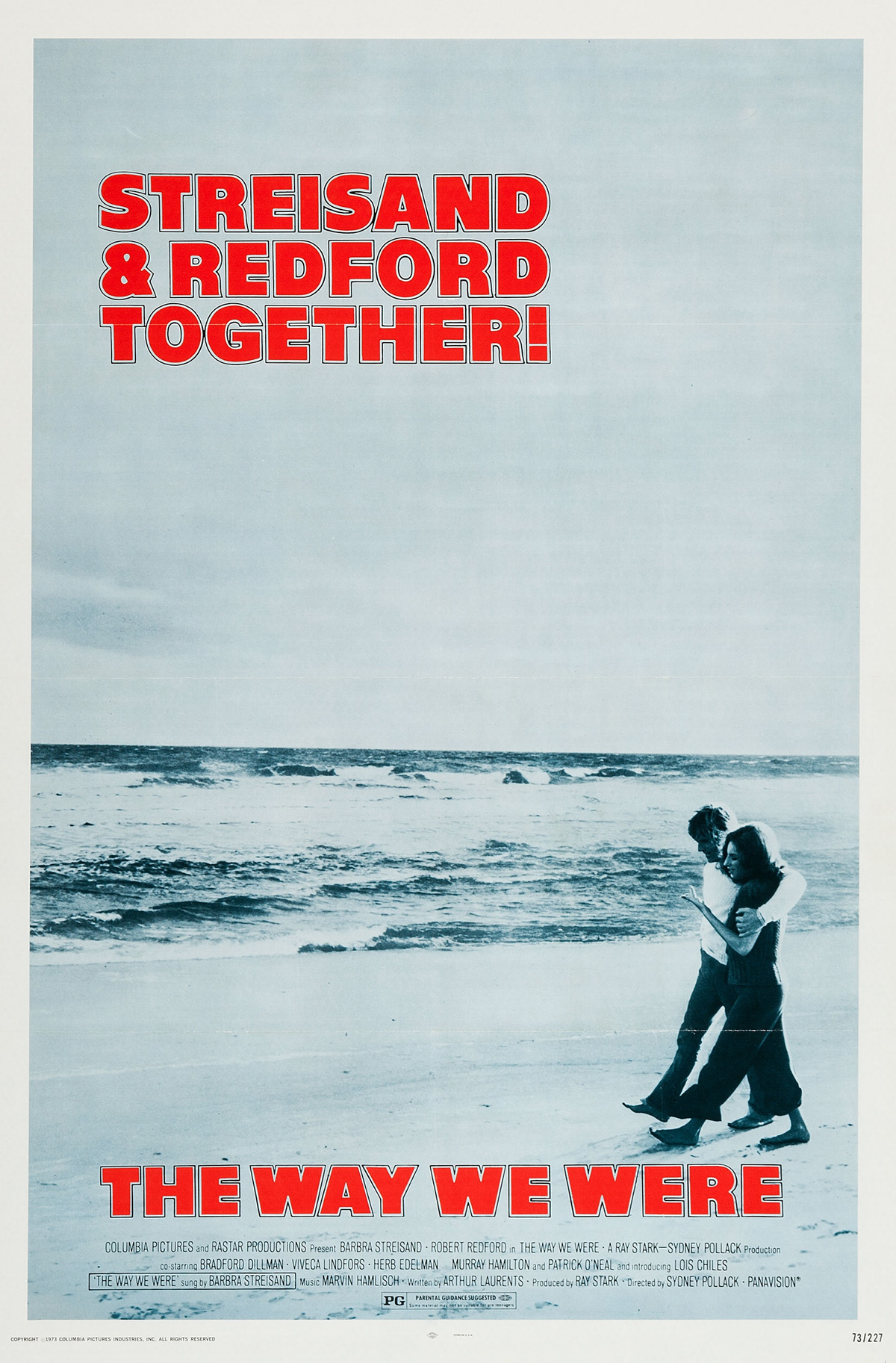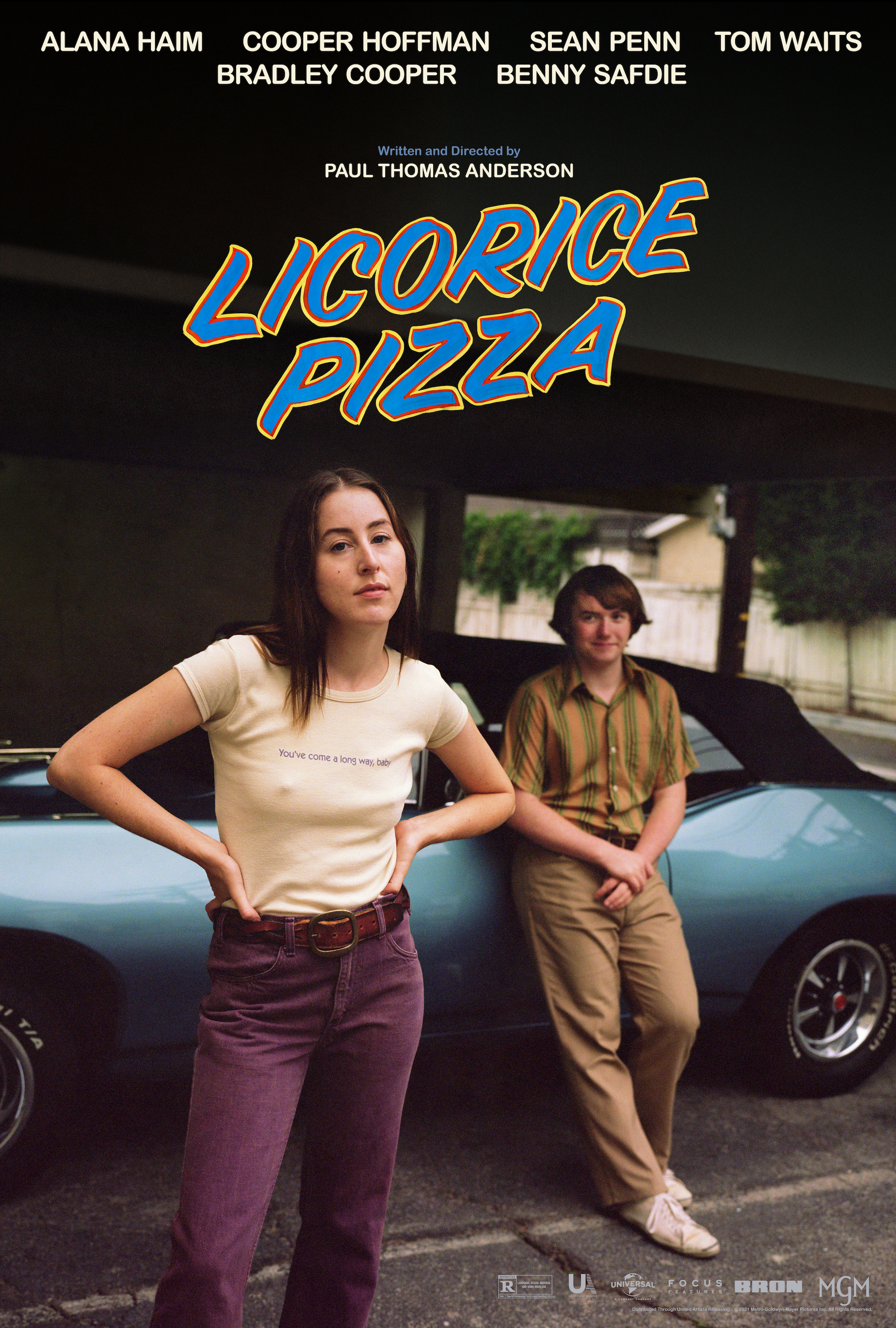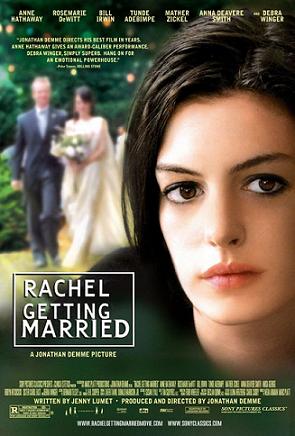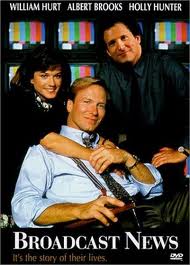
Anne Hathaway’s ‘The Idea of You’ is one (sobering reality check) for the ages
What happens when you’re in love with someone who isn’t in love with you? Many times, that’s a deal-breaker. It’s tragedy. Yet if you’re a 24-year-old heartthrob in a famous boy band, it might be only a minor obstacle.
The secret of “The Idea of You” isn’t just the fantasy of the elites’ dating scene. It’s the vulnerability of Anne Hathaway’s Solène. She’s saying no. But she never actually says no. Which means her wealthy young suitor, Hayes, is free to try, and keep trying. He pursues her not because he believes he can easily win her over but because he senses, despite her protests, she is interested. She resists him only for one reason — she just knows, this can’t end well. Their afternoon together at the art gallery and her home, which spans 24 minutes of screen time as they gauge each other’s intentions and authenticity and reveal vulnerabilities, is among the Greatest Movie Romance scenes ever.
Director Michael Showalter, who also helmed “The Big Sick,” “Spoiler Alert” and “The Eyes of Tammy Faye,” tells The Hollywood Reporter that Hayes’ initial interest is, um, perhaps a little superficial. “He does grow to fall in love with her intellectually and spiritually as well and emotionally, but he also just thinks she’s hot and he says that,” Showalter says. Nicholas Galitzine, who was actually 29 at the film’s release, has an emerging career but is probably not as famous as the character he plays in “Idea.” Hayes likes what must be a rare challenge — convincing a woman to spend time with him. His attempts, and successes, will be the dessert of “Idea,” but the main course will be the permanent beautiful quandary Solène finds herself in.
Males dating obviously older women is not the sexiest Hollywood formula. The most notable is “Harold and Maude,” which gained a following over time. Richard Gere did it in “American Gigolo,” but that’s a neo-noir, not a romance. It happens in a subplot of “The Last Picture Show.” In “Summer of ’42,” Jennifer O’Neill, only 23 at the film’s release, wasn’t much older than the teens in her orbit. In real life, there is Tim Robbins and Susan Sarandon, who were together about 21 years.
There is probably not as much heartbreak in “The Idea of You” as there should be. It yields to the sizzle, which is well worth it, especially when Solène agrees to spend the afternoon showing art to Hayes and quietly contemplates him without reaching a final decision. (That passage concludes with daughter Izzy’s hilarious question to mom, “Are you OK?”) Layered in with the romance are a couple of often-repeated, and contradictory, cinematic observations: Celebrity life can actually be a drag, but when you have enough money, you can overcome just about any situation.
One of the strengths of “Idea” is how Hathaway pulls off Solène’s interest in Hayes combined with her utter disdain for his line of work. She has no interest in his celebrity or entourage and is only mildly encouraging about his music. A few scenes (girls screaming, and the level of conversation among his associates) confirm her skepticism. Yet it’s clear, she does like him.
Showalter makes clear that Solène was not going to be a damsel in distress, he wants to avoid the “tropes” of her sexuality being dormant. “I even think Hayes Campbell’s not the first famous person that she’s dated,” Showalter says. His movie doesn’t totally reflect that perception, a plus, as it would be a risk to imply that what happens to her at the August Moon meet-and-greet happens to her all the time.
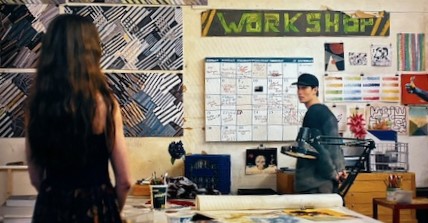
Are we given enough reason for them to be in love? Whether they really connect over art appreciation seems like an early intention of the film that isn’t realized. By the end, we still don’t know if he really has an eye for art or was simply trying to purchase her good graces. It seems she is won over by his determination more than any chemistry. Despite Showalter’s vision, Solène’s social life has dried up to the point she is planning solo camping trips. Hayes, though, meets attractive women all the time. Why is he so interested in her? The Meet Cute in “Idea” may be grasping. She mistakenly ends up in his trailer not realizing it was his trailer. (With the kind of security shown elsewhere in the movie, it seems impossible this situation could occur, but it’s a movie.) Somehow, having spent maybe five whole minutes with her, Hayes is interrupting a concert to dedicate a song to her. It’s her reaction he finds intriguing. She is only mildly embarrassed and not in the slightest interested in him. To him, that is a curious development.
She’s unfazed by his celebrity, doesn’t give in to him and doesn’t melt at his feet. They are about the only mature people in this picture, her being considerably ahead of him, and that is the leverage she holds over him. But should he really be that mature? He is bright but not highly educated and has lived his adult life in a zany fishbowl. The believability of this pairing is not perfect. On a pass/fail, it’s still a pass.
Hathaway in “Idea” draws a cute parallel to Annette Bening in “The American President,” protesting in various ways the advances of a man most women would love to be receiving. “Isn’t it possible our standards are just a tad high?” is one quote from a woman directed at Bening in “President.” In each film, there is a Yoko-esque public outcry about how the presence of this woman for some reason is offending the man’s many fans. “President” is highly entertaining but fades as it gets bogged down in non-visual legislative tradeoffs. It’s a better premise, but lesser movie, than “Idea.”
A fair criticism of “Idea” would be, How is this different than the hundreds of movies about two people from different demographics trying to make a hot relationship last. (Um, where to start ... “The Way We Were” ... “Licorice Pizza” ...) Hayes will say, “I feel like I don’t meet people like you very often,” not a whole lot different than Richard Gere revealing to Julia Roberts in “Pretty Woman” that very few people surprise him. Hayes wonders about his authenticity, kind of like William Hurt in “Broadcast News” or Robert Redford in nearly ... everything. “Idea” does have rich potential for serious commentary on fish-out-of-water romantic pairings. Delving into that, however, would surely negate some of the electricity of the intimacy between Solène and Hayes. A few times, she will give in, then vow no more, each instance building more anticipation for the powerful payoff — can she ever convince herself that this might work?
“The Idea of You” is compared to “Notting Hill.” “Notting Hill” is about What If A Mega-Celebrity Entered The Lives Of Regular Joes. In each movie, the Regular Joe has been ditched by a bad spouse, that’s why they’re single. “Notting Hill” clouds matters by including a boyfriend/ex who complicates the life of Anna Scott. “Idea” declares that Hayes is free and clear, making Solène’s dilemma a pure one.
Keeping that dilemma pure is critical to keeping it strong. Solène’s indecision in real life would be significantly affected by all kinds of sticky considerations. His parents are conveniently dismissed and hers never exist, nor do any of the obviously beautiful women who would regularly circle in the orbit of someone like Hayes and vie for his attention, not just fans but executives or executive assistants or daughters of executives, girlfriends of bandmates or friends of girlfriends of bandmates, etc. In “Idea,” the ages are conveniently low enough (24 and 40) that the notion of starting a family together is not at all impossible. That might seem like a necessary topic of discussion between this couple, but the opposite is true — if she were 50 and he 34, he would have to address whether he could live with the ramifications of that difference.

Michael Showalter and Anne Hathaway.
The villain of “Idea” might be age, or it might be whatever made Hayes fall in love with a woman who doubts that this relationship can work. But more tangible villains are needed, so “Idea” opts for the obnoxious ex-husband Daniel (what, again, did she see in him way back when?) and the very low movie common denominator of social media trashing that Hathaway, as an A-list celeb for a couple decades, has surely, unfortunately, noticed from time to time. Every scene with Daniel is insufferable (for some reason, he still wants to call Solène his wife) and, chances are, most people in Solène’s orbit would be clamoring to talk with her about the experience, not trash her on Facebook. Sometimes, movies take too many tired routes from Point A to Point B.
One passage sequence that stumbles, then clicks mightily, is the expired-food-in-the-refrigerator discovery that is surely meant to be unique and funny but is actually just ... odd. Or maybe not so unique — is there some kind of nod to the “American Graffiti” scene where Wolfman Jack explains that the icebox broke down?
Moments later when the two embrace, the movie suddenly catches fire. That leads up to a pulsating hotel room romp to “Dance Hall Days,” after which she will twice tell him, “You’re not a joke.” Notice that as he is asking her to join him in Europe, she is surprised, and she first indicates she’s happy to go home to L.A. and call this a fun weekend. Despite his successes with Solène thus far, Hayes has yet to achieve what he really wants — the same level of affection that he has for her. Things unravel in Europe when Hayes’ bandmates start revealing stories while trying to ease the tension — curiously, just as Wolfman Jack tried to do in “American Graffiti” — by handing out Popsicles. Solène lets slip a very telling comment: “We both knew it had to end.”
One of the somewhat important developments in the movie is that Solène, for a time, is somehow keeping this quickly international romance from her daughter, which of course will result in a trust issue that has to be ironed out. Roger Ebert liked to write about the Idiot Plot, in which a character/characters could probably figure out the mystery just by thinking about it for a few seconds. That’s a setback here but only a tiny one.
Some romances, such as “The Electric Horseman” or “The Prince of Tides,” consider geography to be an important component of the relationship. “The Idea of You” is nominally set in L.A. but could take place anywhere; the entire movie was filmed in Atlanta. Purportedly in the big city, Solène’s locations (and supporting characters) look and feel how movies often look and feel when depicting the suburbs.
There is eye-rolling throughout the “Idea” script about the value of boy bands, except that in a bit of irony, the snippets of concert performances are pretty good. Many people have never really seen a boy band, or intentionally listened to the songs, and might be pleasantly surprised at an at-times easy-listening vibe.
What prevents the Happily Ever After in “Idea” is, impressively, not a single monumental lapse. It’s the aggregate. Solène is finding that every special moment is upended by some sort of ripple in the fishbowl. And in fairness, it’s a fishbowl of 20-somethings who shouldn’t have to take life as seriously as Solène must. The script says Solène is the tragic figure here, and that is true, except one wonders how often Hayes may lose the love of his life because she can’t deal with the attention. Carolyn Bessette decided to marry JFK Jr. and apparently couldn’t fathom the level of public interest and grew unhappy. But maybe it can work. Yoko and John, and Linda and Paul, were inseparable.
“The Idea of You” is based on the hit novel by Robinne Lee. The film ending, though, differs with the book ending, which Showalter explained was to him a necessity. The way the book settles things, he says, is “not the genre that this movie is.” Rather, the film, he says, “leaves it a little bit open.” Probably a little too open. Solène and Hayes have time to figure things out, but the meter’s running.
3.5 stars
(June 2024)
“The Idea of You” (2024)
Starring
Anne Hathaway
as Solène
♦
Nicholas Galitzine
as Hayes
♦
Ella Rubin
as Izzy
♦
Annie Mumolo
as Tracy
♦
Reid Scott
as Daniel
♦
Perry Mattfeld
as Eva
♦
Jordan Aaron Hall
as Zeke
♦
Mathilda Gianopoulos
as Georgia
♦
Meg Millidge
as Claire
♦
Cheech Manohar
as Jeremy
♦
Raymond Cham Jr.
as Oliver
♦
Jaiden Anthony
as Adrian
♦
Viktor White
as Simon
♦
Dakota Adan
as Rory
♦
Roxy Rivera
as Jodie
♦
Graham Norton
as Graham Norton
♦
Grace Junot
as Nancy
♦
Jon Levine
as Lawrence
♦
Demi Castro
as Benny
♦
Trevor David
as Earl
♦
Brent Bailey
as Todd
♦
Chandler Lovelle
as Charlotte
♦
Nina Bloomgarden
as Amber
♦
Hedy Nasser
as Priya
♦
Luke Roness
as Bryan
♦
Melanie Kiran
as Moonhead Woman
♦
Rashal James
as Desmond
♦
Angela Davis
as Brenda
♦
Lauren Revard
as Camp Mom
♦
Tiffany Morgan
as Camp Mom
♦
Dustin Lewis
as Camp Dad
♦
Tanya Lim
as Counselor Molly
♦
Bethany Brown
as Debbi
♦
Trinity Ansah
as Nina
♦
Holly A. Morris
as Linda
♦
Jean-Luc McMurtry
as Chateau House Staff
♦
Darryl Fields Jr.
as VIP Tent DJ
♦
Jason Collett
as Security Guard
♦
Simone Alston
as Dancer
♦
Tiara Crowe-Jackson
as Dancer
♦
Kesley Bou
as Dancer
♦
Scott Myrick
as Dancer
Directed by: Michael Showalter
Written by: Robinne Lee (novel)
Written by: Michael Showalter (screenplay)
Written by: Jennifer Westfeldt (screenplay)
Producer: Anne Hathaway (p.g.a.)
Producer: Gabrielle Union (p.g.a.)
Producer: Cathy Schulman (p.g.a)
Producer: Robinne Lee
Producer: Michael Showalter
Producer: Eric Hayes
Producer: Jordana Mollick
Executive producer: Douglas S. Jones
Executive producer: Jennifer Westfeldt
Executive producer: Jason Babiszewski
Executive producer: Kian Gass
Music: Siddhartha Khosla
Cinematography: Jim Frohna
Editing: Peter Teschner
Casting: Tiffany Little Canfield, Bernard Telsey
Production design: Amy Williams
Art direction: Kat Rich
Set decoration: Melisa Jusufi
Costumes: Jacqueline Demeterio
Makeup and hair: Lindsay McAllister, Tarra Day, Adir Abergel, Magnolia Lowe, Mayumi Murakami, Nana Fischer, Eduardo Mendez, Blythe Bickham, Antoinette Black, A.J. Horan, Diamond McCall, Shaneka Murray, Haley Porch, Lucy Allen, Julie Kendrick, Jordan Rosenstein, Emma Trachtenberg
Executive in charge of production: Dave Bennett
Production supervisor: Jennifer Campbell
Head of physical production: Glenn S. Gainor
Unit production manager: Douglas S. Jones
Production manager: UK Shoot: Terence Madden
Post production supervisor: Andrew Keogh Ruotolo
Stunts: Elizabeth Davidovich, Heather Hayes, Leesa Pate, David Alessi, Derek Carver, Lea Enslin
